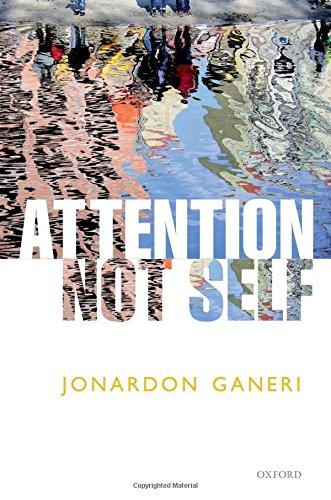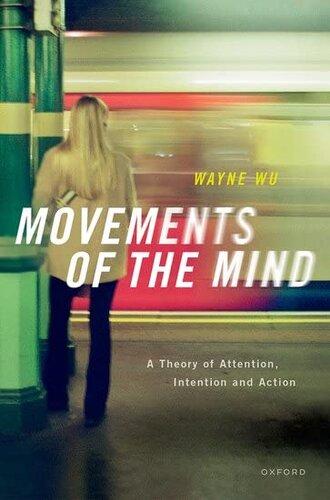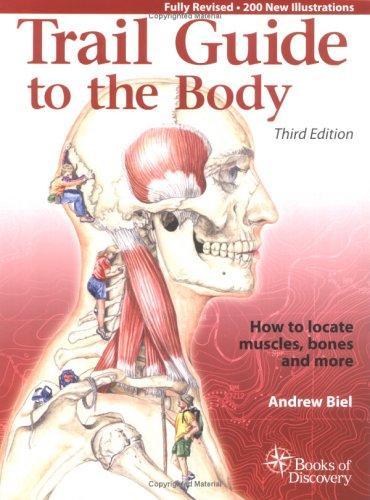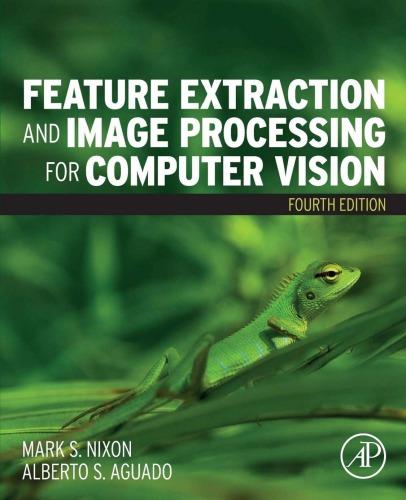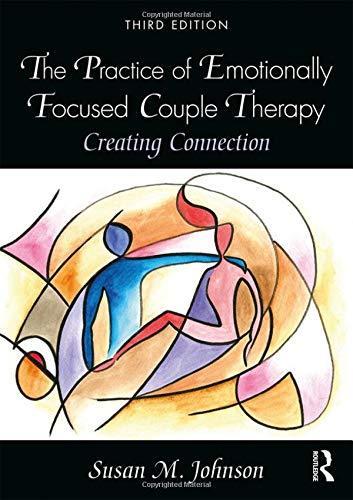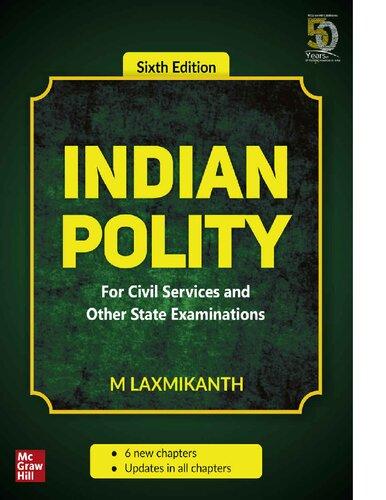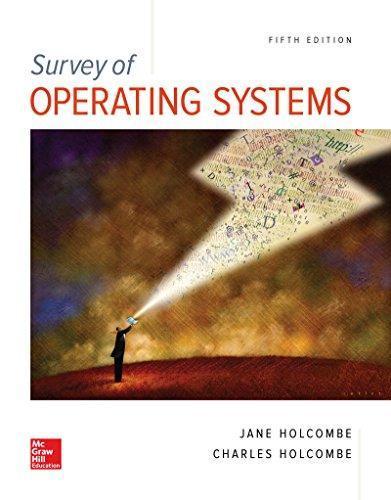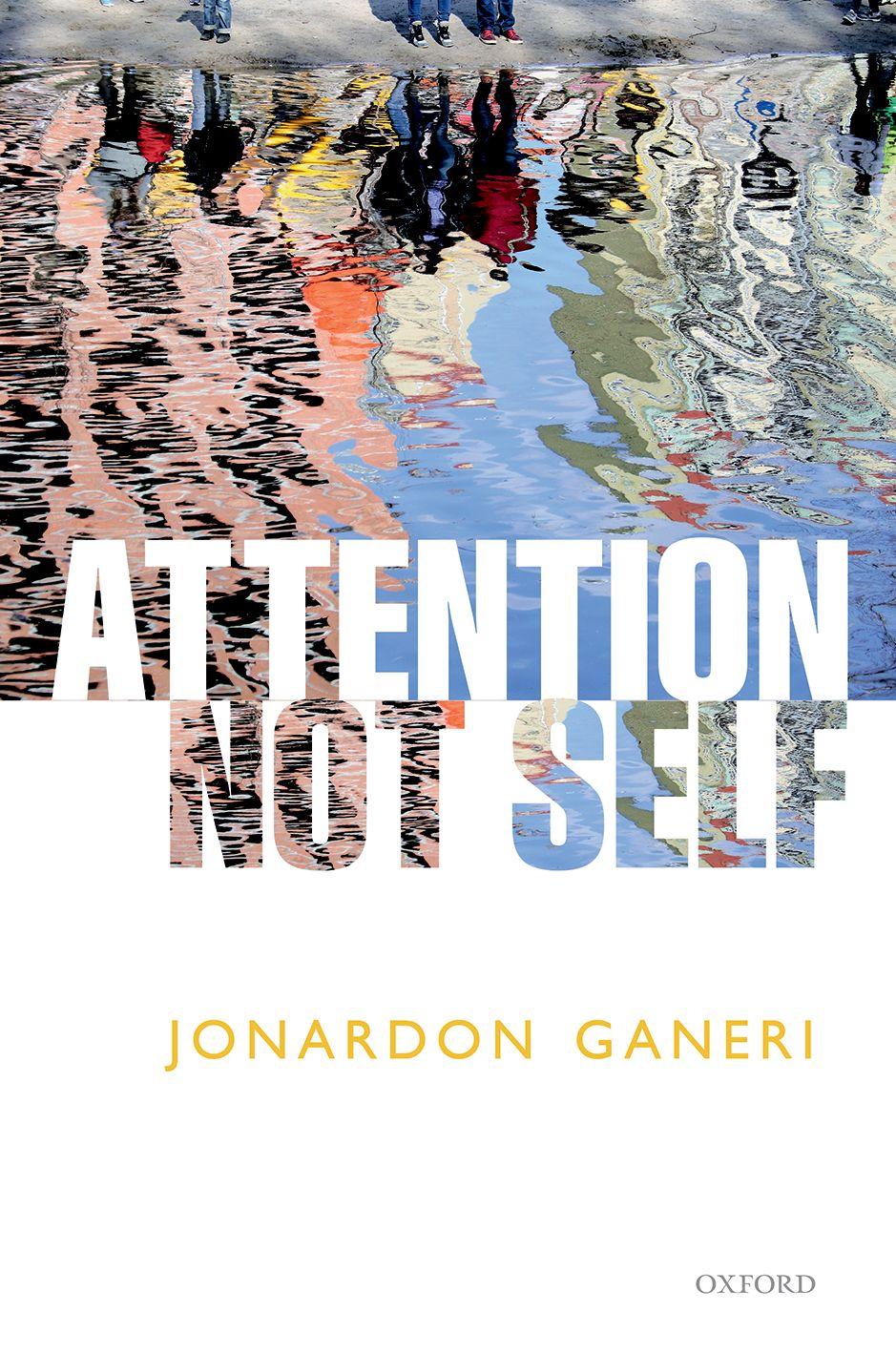https://ebookmass.com/product/attention-not-self-jonardon-
Instant digital products (PDF, ePub, MOBI) ready for you
Download now and discover formats that fit your needs...
Movements of the Mind: A Theory of Attention, Intention, and Action Wayne Wu
https://ebookmass.com/product/movements-of-the-mind-a-theory-ofattention-intention-and-action-wayne-wu/
ebookmass.com
Not My Boy Kelly Simmons
https://ebookmass.com/product/not-my-boy-kelly-simmons-4/
ebookmass.com
Not My Boy Kelly Simmons
https://ebookmass.com/product/not-my-boy-kelly-simmons/
ebookmass.com
Trail Guide to the Body: How to Locate Muscles, Bones, and More eBook
https://ebookmass.com/product/trail-guide-to-the-body-how-to-locatemuscles-bones-and-more-ebook/
ebookmass.com
Feature extraction and image processing for computer vision Fourth Edition Aguado
https://ebookmass.com/product/feature-extraction-and-image-processingfor-computer-vision-fourth-edition-aguado/
ebookmass.com
Essentials of Understanding Psychology 12th Edition Robert S. Feldman
https://ebookmass.com/product/essentials-of-understandingpsychology-12th-edition-robert-s-feldman/
ebookmass.com
Spinoza and the Freedom of Philosophizing Mogens Laerke
https://ebookmass.com/product/spinoza-and-the-freedom-ofphilosophizing-mogens-laerke/
ebookmass.com
The Practice of Emotionally Focused Couple Therapy: Creating Connection 3rd
https://ebookmass.com/product/the-practice-of-emotionally-focusedcouple-therapy-creating-connection-3rd/
ebookmass.com
Indian Polity: For Civil Services and Other Competitive Examinations 6th Edition M. Laxmikanth
https://ebookmass.com/product/indian-polity-for-civil-services-andother-competitive-examinations-6th-edition-m-laxmikanth/
ebookmass.com
Survey of Operating Systems, 5e 5th Edition u2013 Ebook
PDF Version
https://ebookmass.com/product/survey-of-operating-systems-5e-5thedition-ebook-pdf-version/
ebookmass.com
Attention,NotSelf
Attention,NotSelf
JonardonGaneri
Attentionisoffundamentalimportanceinthephilosophyofmind,inepistemology,inactiontheory,andinethics.JonardonGaneripresentsanaccountinwhich attention,notself,explainstheexperientialandnormativesituatednessofhuman beingsintheworld.Attentionconsistsinanorganizationofawarenessandactionat thecentreofwhichthereisneitherapracticalwillnoraphenomenologicalwitness. Attentionperformstworolesinexperience,aselectiveroleofplacingandafocal roleofaccess.Attentionimprovesourepistemicstanding,becauseitisinthenature ofattentiontosettleonwhatisrealandtoshunwhatisnotreal.Whenattentionis informedbyexpertise,itissufficientforknowledge.Thatgivesattentionareach beyondtheperceptual:forattentionisadeterminablewhosedeterminatesinclude theepisodicmemoryfromwhichournarrativeidentitiesaremade,theempathyfor othersthatsituatesusinasocialworld,andtheintrospectionthatmakesusselfaware.Empathyisother-directedattention,placedonyouandfocusedonyour statesofmind;itisakintolistening.Empatheticattentioniscentraltoarangeof experiencesthatconstitutivelyrequireacontrastbetweenoneselfandothers,allof whichinvolveanawarenessofoneselfastheobjectofanother’sattention.An analysisofattentionasmentalactiongainsaysauthorialconceptionsofself,because itisthenatureofintendingitself,effortfulattentioninaction,tosettleonwhattodo andtoshunwhatnottodo.Aconceptionofhumanpersonsasbeingswitha characteristiccapacityforattentionoffershopeforresolutionintheconflictinethics betweenindividualismandimpersonalism.
GreatClarendonStreet,Oxford, OXDP, UnitedKingdom
OxfordUniversityPressisadepartmentoftheUniversityofOxford. ItfurtherstheUniversity’sobjectiveofexcellenceinresearch,scholarship, andeducationbypublishingworldwide.Oxfordisaregisteredtrademarkof OxfordUniversityPressintheUKandincertainothercountries
©JonardonGaneri
Themoralrightsoftheauthorhavebeenasserted
FirstEditionpublishedin
Impression:
Allrightsreserved.Nopartofthispublicationmaybereproduced,storedin aretrievalsystem,ortransmitted,inanyformorbyanymeans,withoutthe priorpermissioninwritingofOxfordUniversityPress,orasexpresslypermitted bylaw,bylicenceorundertermsagreedwiththeappropriatereprographics rightsorganization.Enquiriesconcerningreproductionoutsidethescopeofthe aboveshouldbesenttotheRightsDepartment,OxfordUniversityPress,atthe addressabove
Youmustnotcirculatethisworkinanyotherform andyoumustimposethissameconditiononanyacquirer
PublishedintheUnitedStatesofAmericabyOxfordUniversityPress MadisonAvenue,NewYork,NY ,UnitedStatesofAmerica
BritishLibraryCataloguinginPublicationData
Dataavailable
LibraryofCongressControlNumber:
ISBN ––––
Printedandboundby
CPIGroup(UK)Ltd,Croydon, CRYY
LinkstothirdpartywebsitesareprovidedbyOxfordingoodfaithand forinformationonly.Oxforddisclaimsanyresponsibilityforthematerials containedinanythirdpartywebsitereferencedinthiswork.
Introduction
PartI.ThePriorityofAttention
AttentionandAction
Attention,NotSelf
TheAgent-CausalSelfDenied
AttentionasMentalAction
Buddhaghosa’sAttentionalism
Consciousness
ConcomitantsandCauses
FindingConsciousness
FourDe finingFeatures
ThoughtandWorld
IntentionalityisIrreducible
AspectsofAttention
TheFeelingforReality
FunctionalDefinitions
AWorldNormativelyAlive
PartII.AttentionandKnowledge
TheContentofPerceptualExperience
MindednessandtheEpistemicRoleofExperience
DoesLinguisticCapabilityPervadeExperience?
FeltEvaluationandActionSolicitation
LabellingandCognitiveAccess
PhenomenalQualityOverflowsCognitiveAccess
IntentionalismRevisited
PerceptualAttention
TheTwoRolesofAttention
Thinking-OfandThinking-Through
AttentionandPerceiving-As
PerspectiveandObjectFiles
AttentionandKnowledge
AttentionalJustification
CognitivePenetration
AttentionandImagination
Attention,Knowledge,andExpertise
PartIII.TheCallingofAttention
OrientingAttention
APuzzleaboutAttention
CanthePuzzlebeDissolved?
DoesthePuzzleTradeonanAmbiguity?
SubliminalAttention
CrossmodalityandSubliminalOrienting
ATheoryofVision
Vision’sThreeStages
PrimaryVisualAcknowledgement
SubliminalSeeingandPhenomenalQuality
TheDisunityofMind
WhyMindisnotanInternalSense
Low-LevelMind:Forerunning
High-LevelMind:Inter-Cognizing
Top-DownEffectsontheModulesofMind
WorkingMemoryandAttention
LateGate-Keeping
MindinRunningMode
InternalMonitoringDenied
TheTheatreSimileReworked
Attention:WindownotSpotlight
PartIV.AttentionExpanded
VarietiesofAttention
AttentionisnotaNaturalPsychologicalKind
IntendingasAttention
IntrospectionasAttention
MindfulAttention
DividedAttention
AttentionandSelection
NarrativeAttention
TimeandtheSelf
EpisodicMemoryasAttention
AutonoeticConsciousnessandOwnership
EpisodicMemoryandReflexiveMentalFiles
EmpatheticAttention
Empathy:TheAwarenessofOthersasOthers
EmpathyasAttention
EmpathyasExperientialAccess
TestimonyandImagination
EmpiricisminthePhilosophyofMind
PartV.AttentionandIdentity
IdentifyingPersons
FreedomfromAlienation
TheConceptofaLivingBeing
PersonsasLociofValueandSignificance
Disgust:AnImmuneSystemforCognition
OntheEcotonalityofMindandLife
CravingasAutonoeticLonging
SelfandOther
OneselfasObjectofAnother’sAttention
PhenomenologyandtheNormative
IndividualismandImpersonalismRejected
FinitudeandFlow
AttentionandCentring
Self-NarrativesandSurvival
AttendingtoWhatMattersattheEndofLife
Postscript:PhilosophyWithoutBorders
Acknowledgements
ListofFiguresandBoxes
Bibliography
Index
Epigraphs
Wesay: ‘Ididn’tsee;myattentionwaselsewhere.Ididn’thear;myattention waselsewhere.’ Foritisthroughtheattentionthatoneseesandhears.Therefore, evenwhensomeonetouchesusontheback,weperceiveitthroughtheattention.
Br hadaranyakaUpanisad(c. thcentury BCE.BU ..)
Andwhatistheproximatecauseforknowledge,forseeingthingsastheyreally are?Itshouldbesaid:attention.
SamyuttaNikaya(c. rdcentury BCE.S.ii.)
Attentionisthecentringofconsciousnessevenlyandcorrectlyonasingleobject; placingiswhatismeant.Itsfunctionistoeliminatedistractors.
Buddhaghosa, ThePathofPuri fication (c CE; Path [iii.])
Thefunctionofconsciousnessmustbetolinkusattentivelytothephysicalworld thatcontainsus...Attentionultimatelyfunctionsasasortoflife-bloodfora wholerangeofmentalphenomena;orperhapsbetterexpressed,asakindof psychicspace...Asystemofexperienceconstitutesacontinuousongoingphenomenonwhichisasortofcircleorcentreofawareness.Thisawarenessisthe Attention
BrianO’Shaughnessy, ConsciousnessandtheWorld ( : , , ) (UsedwiththekindpermissionofOxfordUniversityPress)
Attentionprovidesawindowforconsciousnessthroughwhichwebecomeawareof asmallsubsetofrealbindingsamongathrongofillusoryphantomobjects.
AnneTreisman, ‘ConsciousnessandPerceptualBinding’ in A.CleeremansandC.Fritheds., TheUnityofConsciousness, Binding,Integration,andDisassociation (: ) (UsedwiththekindpermissionofOxfordUniversityPress)
x EPIGRAPHS
Weshouldnotpretendto findadetachedselfinallourexperiencingand acting...weshoulddiscardtheideathatmindednessimpliesthepresenceofa detachedself.
JohnMcDowell, ‘TheMythoftheMindasDetached ’ inJoseph Scheared., Mind,ReasonandBeing-in-theWorld (: ) (UsedwiththekindpermissionofRoutledgePress)
Thereisnoinnerselfwhichdoesthelookingtowardsorlookingaway.
Buddhaghosa, TheDispellerofDelusion (c CE; Dispeller )
WhenIrunafterastreetcar,whenIlookatthetime,whenIamabsorbedin contemplatingaportrait,thereisnoI...Iamthenplungedintotheworldof attractiveandrepellantqualities butme,Ihavedisappeared.
Jean-PaulSartre, TheTranscendenceoftheEgo (: , )
Attentionwitheffortisallthatanycaseofvolitionimplies.
WilliamJames, PrinciplesofPsychology ( ,v. : )
Shameismyempatheticawarenessoftheother’sattention...leadingto decreasedself-esteem.
DanZahavi, SelfandOther (: ) (UsedwiththekindpermissionofOxfordUniversityPress)
Introduction
Thisbookisanexplorationofthereorientationsthattakeplacewhen attentionisgivenpriorityintheanalysisofmind.Attention,Iwillargue, hasanexplanatoryroleinunderstandingthenatureofmentalactionin generalandofspecificmentalactionssuchasintending,remembering, introspecting,andempathizing.Ithasacentralroleinexplainingthe structureofthephenomenalandofcognitiveaccess,theconceptofthe intentionalityordirectednessofthemental,theunityofconsciousness,and theepistemologyofperception.Andattentionisalsokeytoanaccountof thenatureofpersonsandtheiridentity,tothedistinctionbetweenoneself andothers,andtothemoralpsychologythatrestsuponit.
Iclaimthatwhatexplainsthenatureofourconsciouslyactiveinvolvementwiththeworld,ourfreedomfrompassivity,isattention.Thisleadsme firsttorejecttwoideasinthephilosophyofaction,agentcausalismandthe causaltheoryofaction,oneverymuchoutofvogueandtheothervery muchin.WhatIwillcallthe ‘AuthorshipView’ ofselfdetachestheselffrom experienceandaction;itisthemaintargetofBuddhist ‘no-self ’ (anatta) polemic,moresoeventhannotionsofselfaspermanentsubstanceor substratum.Theargumentisperhapsstraightforward:beingthecentreof anorganizedarenaofexperienceandactionisapropertynotofarealbutat bestofavirtualentity,whichassuchcannothaveanycausalpowers;sothe selfcannotbeanagent.Itcannotbeaninactivewitnesseither,because witnessingismeta-cognitiveattentionandattentionisamentalaction.The causaltheoryofaction,thataneventisanactionjustincaseitiscausedbya rationalizingintentionwhichisitselftheresultofanagent’smotivating beliefsanddesires,mayprovideasufficientconditionforactionbutcannot constituteanecessaryone not,atleast,ifonewantstoleaveroomforthe ideathatmuchofwhathappensinthemindismentalactionandnotmere happening.Thatisparticularlytrueofattention,consideredasafundamental
kindofmentalaction,anditisunfortunatethattheinfluenceofthecausal theoryofactioncontinuesincognitivepsychology’senduringattachmentto anendogenous/exogenousdistinctionintheoriesofattention.
Consciousattention,Iwillargue,performstwodistinctrolesinexperience,aroleofplacingandaroleoffocusing,roleswhichmatchadistinction betweenselectionandaccessendorsedininfluentialrecenttheoriesof attention(Treisman ;HuangandPashler ).Theintentionalityof consciousexperiencerestsontwosortsofattentionalaction,a focusing-at and a placing-on,the firstlendingtoexperienceaperspectivalcategoricalcontent andthesecondstructuringitsphenomenalcharacter.Placingshouldbe thoughtofmorelikeopeningawindowforconsciousnessthanasshining aspotlight,andfocusinghastodowithaccessingthepropertiesofwhatever thewindowopensonto.Awindowisanaperturewhoseboundariesare definedbywhatisexcluded inthiscase,distractors.Theclaimthat attentionperformstwoconstitutiverolesinperceptualexperienceismotivatedbyaneedtorespecttwoapparentlycompetinginsightsaboutexperience,onehavingtodowithitsepistemicroleinsupplyingreasonsforour beliefsabouttheworldaroundus,theothertodowiththephenomenology ofopennesstotheworld.Attentionisthegluethatbindsoursensate,active, andrationalnatures,thatinvirtueofwhichweboth findourselvesabsorbed byaworldofsolicitationsandalsowhatenablesustoaccessobjective featuresoftheentitieswhosepresencesolicitsus.
Therecognitionthatattentionperformsthesetworolesenablesmeto arguethattheepistemologyofattentionissuchthatattentionprovidesan immediateimprovementtojustification,aslongastherearenodefeaters, andalsothatwhensuitablyexpertattentionissufficientforknowledge. Iwillarguethatattentionaljustificationisanunderivedepistemicprinciple, andrelateitwithaviewknownas ‘Dogmatism’ intheepistemologyof perception.Thereis,Iwillagree,cognitivepenetrationofattentionby beliefsandinterests,aswellasbypastactions,butitisrestrictedinscope. Soattentionimprovesjustification,andsometimes,whenattentionistrained orcultivated,theimprovementissuchastodeliverknowledge.
Apuzzleaboutattentionwithalonghistorywillneedtobeaddressed,the puzzlethatattentioncanbecapturedbyeventsorfeaturesandinsuchcases doesnotappeartoberequiredforconsciousexperience.Onemightargue thatthereisstillconsciousattentioninthesecases,thoughofaglobalsort; buttheviewIdefendisratherthatattentionhasasubliminalaswellasa
consciousform.Subliminally,attentionisthemodeofactivityofcognitive moduleswhichareresponsiblefortheorientingtowardsandprocessingof stimuli,andtheirdeliveranceintoawareness,aswellasforcrossmodal integration.Acloserelationshipbetweenattentionandworkingmemory isrevealed,attentionhavingalargeparttoplayinthegate-keeping, maintaining,andmodulatingofinformationinworkingmemory.Attentionalorientingisanactionwithtwoaspects,acognitiveaspectinthe instructiontoselectasensemodality,andacontributiontoconsciousness throughtheembodiedintentionalitythatisamatterofbeing ‘intouch with’,aliveorpresentto,engagedby,theenvironment.Soorientinghasa constitutiveroleina firstsortofreachingoutwhichconsistsinbeingpresent totheworld.Itwillbeimportanttoseparatetheroleofattentionwithina philosophyofconsciousthoughtfromitsrolewithinaphilosophyofcognitivescience,betweenattentionconsideredasacontributortoconscious experienceandattentionconsideredasanactivationofcognitivemodules. Itisafundamentalfeatureoftheaccounttobedevelopedherethatthere aremanyvarietiesofconsciousattention.Abasic(thatistosay,irreducible) kindofattentionisintending,whenonesetsoneselftoact,astrainingor exertionthat fillsthe ‘psychicspace’ withresolution.Otherbasickindsof attentionareintrospection,adistinctivemannerofattendingtotheworld andnotquasi-perceptualawarenessofone’sinnerlife,andmindfulness,a kindofrehearsingorretentiveattention.Attention,moreover,isthatin virtueofwhichonedoesnotmerelyliveinthepresentbutalsotravels mentallyintothepastandissituatedinasocialworldwithothers.So anotherbasicvarietyofattentionispast-directedandautonoetic:itisplaced onpasteventswhosepropertiesareretrievedinanactofsimulatedreliving. Inepisodicmemory,therelivingofexperiencefromone’spersonalpast, oneattendstothepastinaparticularway,butthereisnoreductionof thephenomenologyoftemporalexperiencetoarepresentationofselfas inthepast.
Attentioncanalsobeplacedonothers,andthis,too,isabasicvarietyof attention.Nowitisyouonwhommyattentionisplaced,andwhatIaccess infocusingonyouareyourmentalstates.Idonotexperiencethemdirectly; rather,yourmovementsprovidefocalattentionwithacausalchannel:they ‘intimate’ yourthoughtstome.Itisanalogoustolisteningtoanother,itselfa kindofattention.Soempathy,one’sawarenessofanotherintheirotherness, isanattentionalstate,afactthatisphenomenologicallyevidentifonereflects
onwhatitislikeoneselftobethatotheronwhomanother’sattentionfalls. Toconceiveofabeingasotheristoconceiveofitasthecentreofanarena ofpresenceandactioninwhichonemayoneselfbelocated,butnotatthe centre.Whilephenomenologistshaveclaimedthatempathyisaperceptual skill,Iwillargueinsteadthatempathyisadistinctkindofattention, attentionthroughembodiedcomportmenttothefeelings,commitments, andwishesofothersasothers.
Iwilldrawonthedistinctionbetweenselfandotherthatismadeavailable byempatheticattentioninordertoconstructanaccountofpersons.Persons arenotmerelycausallyconnectedchainsofpsycho-physicalevents,norare theyphysicalobjectsthathappentoinstantiatementalproperties:theyare lociofvalueandsignificance.Theboundariesofapersonaredefinedby whatisexcludedasalien,andsothenotionofapersonisapophaticrather thanforensic.Emotionslikeshameevidentlypresupposethatthereissucha distinction,forshameisanempatheticaccesstoanother’sattentiononone, andaresultantdiminishingofself-esteem.
Thereisnoneedtointroduceanymorerobustdistinctionbetweenself andotherthantheoneimpliedbyaconceptionofpersonsasbeingswitha characteristiccapacityforattention.Inparticular,thereisnoneedtoconceiveofthedistinctionashavingitsbasisinaphenomenologyofinteriority orinanauthorialconceptionofself.Thereisnothingthatcouldbe describedastheinvariantcoreofahumanbeing,suchasasetof fixed charactertraits,butoneeffectofattendingistomakesomeelementsmore central,atleastforashortperiod.Neithershouldwethinkofthenarrative identityofapersonasrequiringonetostandinarelationofsympathyfor one ’spastandfuturecondition:itisenoughthatonedoesnotfeelalienated fromthem.Sotheconceptionofhumanbeingsasendowedwiththe capacityforattentionprovidesanalternativebothtostridentindividualism andtoimpersonalholism.Attentionprecedesselfintheexplanationofwhat itistobehuman,andifthereisanythingdefensibleintheconceptofself,for exampleastheexpressionofasubjectivitythatisatonceexperientialand normative,thenititselfmustbeunderstoodintermsofitsrelationshipto attention.Soattention,notself,iswhathasexplanatorypriority,andthe misapplicationoftheconcept self isastheconceptofadetachedauthor, thesimpleoriginofwilleddirectives,aconceptthatforcesustounderstand themindintermsofadichotomybetweenfreevoluntaryactionsandpurely passivehappenings.
INTRODUCTION
Such,inoutline,isthepositionIdescribeanddefendhere.Indoingso IwilldrawextensivelyontheideasandargumentsofaTheravadaBuddhist philosopher,Buddhaghosa,livinginSriLankaandwritinginPaliaroundthe fifthcentury CE.Ahugelyimportant figureinthehistoryofphilosophy,his ideaswouldinfluenceconceptionsofthehumanthroughoutSouthand SoutheastAsiaforamillenniumandahalf,andtheycontinuetodosotoday. Theirphilosophicalsignificance,moreover,isglobalinreach.ForAttentionalism,aswecallthestancewhichlendsattentioncentralityinexplanatoryprojectsinphilosophy,encouragesustorethinkmanycentralconcepts inthephilosophyofmindfromanattention-theoreticperspective.Two largebodiesofdataaboutattentionareavailabletoanaspiringAttentionalist: first,therichexperimentalstudiesofcontemporarycognitivepsychology; and,second,theinformationwhichemergedasaresultofmeticulous Buddhistintrospectiveobservationofthehumanmind’sstructureand functioninginthe first , yearsaftertheBuddhalived.Iwillseekto drawthesetwobodiesofevidencetogether,tostudythephilosophical implicationsoftheirinteraction,andthustoformabetterappreciationof thereachandlimitsoftheproject.Anattention-theoreticapproachbrings importantnewoptionstothetableincontemporaryphilosophyofmind andcognitivescience,providingnewdirectionstorecentworkonthe pervasivenessofthemental,embodiedcognition,cognitivephenomenology,intersubjectivity,personalidentity,andtheexperienceoftime.
MichaelDummettrecentlypredictedthat ‘thebestpointofcontact betweenphilosophersofdivergenttraditionssurelyliesinthephilosophy ofmind’ (: ).Philosophyofmindisindeedatransculturalundertaking:thesearchforafundamentaltheoryofmindmustneverlimititselfto theintuitionsandlinguisticpracticesofanyonecommunityofthinkersbut shouldbereadytolearnfromdiverseculturesofinvestigationintothe natureofmindandmind’sinvolvementinworld.TheBuddhistthinkers whoseideasareexaminedherehadanenormousinterestingettingthestory rightaboutthemind,andforthatreasonifnootherweshouldtakevery seriouslywhattheyhadtosay.Oneoughtnotaskancienttextstobearthe weightofgreaterexpectationsthantheycansustain,butwithdiscretionand sensitivitytheycanbeasourceofprofoundphilosophicalinsight.
PARTI ThePriorityofAttention
1 AttentionandAction
Attention,NotSelf
Ournatureistobeactiveinthemannerinwhichweorientourselvesin ourenvironment,situateourselveswithinit,searchit,andscrutinizeit. Attentionisthenameforthisactivity.Yetourenvironmentsareactive too,callingourattentiontofeatureswithinthem,imposingthemselves uponus.Aphilosophicalpuzzleistounderstandwhatsortofcreatureswe mustbeif,inourinvolvementsinaworld,wecaninthiswaybeboth moversandmoved.Mythesisisthatanappreciationofthenatureof attentionasalreadyanactivityrulesoutonepervasiveviewofourselves, theviewthatwearethedetachedauthorsofourexperiencesandactions. InsteadIwillarguethathumanbeingsarecreatureswithacharacteristic capacityforattention.
AcentralBuddhistclaim,tobeexploredindetailinPartIofthisbook,is thatthe fieldsofactionandawarenesshaveacertainstructure:roughly,that thereisa ‘ space ’ or ‘frame’ ofawareness(citta)whichisinfactnothingmore thanarangeofexperiential,attentive,andagentivefunctions(cetasika)that takeplacewithinit.Buddhistanalysisofmind andmyfocusthroughout thisbookisonTheravadathinkerswritinginthePalilanguage isdeeply investedinthegeneralcontoursofsuchadescription.Initsanalysisof thestructureofconsciousnessthereisa ‘frame’ (citta)whoseexistenceand continuityareprovidedforbyacapacitytosustainalivedmentalworld andasenseofpresencetotheworld,whosecontentsarefeltevaluationsand categorialtypes,andwhichisconstitutedinthecoordinatedattentional actionsofsingle-pointedplacings,focalaccessings,andintendingsortryings. These ‘concomitants’ (cetasika)accompanyallconsciousthought.Atits centrethereisneitheranagent,presentedasproducingthecentredarray, norawitnesspassivelyobservingthedisplay.So anatta,thefamousBuddhist
thesisofno-self,isarejectionoftheideathatadetachedagentactsinthe centreofaspaceofaction,orthatadetachedwitnesswatchesfromthe centreofaspaceofexperience.
AcontemporaryphilosophertoacknowledgethisBuddhistidea,and indeedwithexplicitreferencetoBuddhisttheory,isMarkJohnston.He putsitasfollows: ‘wheneverthereisthinkinggoingon,thereismorethatis directlyphenomenologicallyevident.Thereisanarenainwhichthethinkingistakingplace’ (: ).An ‘ arena ’ isasortofvirtualframeforthe streamofconsciousness;itis ‘themindconsideredasasortofplace, themental “bed” inwhichthestreamofconsciousness flows ’ (: ). Thearenaiscentredbecausethepresentationofitemsinsensory,bodily,and mental fieldsisperspectival:itemsarepresentedtoaparticularviewing positionfromwhichoneperceivesthesurroundingenvironment,andthe impliedpositionofperspectivalexperienceisalsoapositionfromwhich one ’sactsemanate.CautionhasalsobeenvoicedbyJohnMcDowell, whowarnsthat ‘weshouldnotpretendto findadetachedselfinallour experiencingandacting...weshoulddiscardtheideathatmindedness impliesthepresenceofadetachedself ’ (: ).WhenaBuddhistsays that ‘hereinthisworldthereisnoselfthatissomethingotherthanandapart fromthementalfactors’ (Pm. ,citedin Nanamoli : ;cf. Vasubandhu : ,inGaneri : –)whatisbeingrejectedis preciselythisnotionofaself detached fromexperiencingandacting.
Animportantrecentformulation(withorwithoutdirectBuddhistinfluence)isprovidedbyBrianO’Shaughnessy().O’Shaughnessybeginsby arguingthatattentionisnecessaryforconsciousness,or,moreprecisely,that consciousness ‘necessitatestheaccessibilityoftheperceptualattention’ (: ).Attentionisnecessaryforconsciousnessbecauseconsciousness hasanecessarytruth-orientation;itisa ‘reality-detector’,andindeedthatis whatitmeanstosaythatconsciousnessputsusincontactwithreality,that ‘whereasdreamsmerelyputativelyareofReality,consciousnessis “intouch with” Reality’ (: ).Therearealreadyechoeshereoftwoclaims Buddhistsmake,thatperceptualengagement(phassa)andattention(manasikara)areconcomitants O’Shaughnessyspeaksratherof commitments of consciousness.Asforthenatureofattention,O’Shaughnessysaysthata naturalandappropriateimagerycaneasilyturnintoamyth.Thenatural imageryisofattentionasmental ‘life-blood’ ,as ‘asortofmental “ space ” of awarenesspresentinthemind,whichisoccupiedexclusivelybythe
experiencesitenablestoexist’ (: ),for ‘if(say)emotionorthoughtor perceptionaretosomuchas exist,attentionneedstobeavailable’ (: ).So ‘attentionultimatelyfunctionsasasortoflife-bloodforawhole rangeofmentalphenomena;orperhapsbetterexpressed,asakindofpsychic space ’ (: ).Thepointoftheimageryisthatitcapturesthatsense inwhichattentionislimitedor ‘occupied’,asensethatisillustratedwith theexampleofdrivingacarthroughanarrowpass,one’sattentiontothe drivingprecludingonefromattendingtoadifficultconversationatthesame time.O’Shaughnessycautionsthatthisimagerycaneasilybemisunderstood, foritmayleadtotheimpressionthattheexperienceswhichattention enablestoexistareonethingandthe ‘mentalspace’ ofawarenessissomethingelse: ‘Themythinquestiontakesthefollowingform.Itisofamental existent(whichIshallcallS),aparticularmental “ space ” thatisoftype awareness(insomesense),whichcoexistswithandisdistinctfromcontemporaneousexperiences.Thoseexperiencesrelatetothatawareness-space, notasitsobjects,butasitsoccupants,andthatpropertyenablesthemto exist’ (: ).Oragain, ‘thattowhichthesevariousexpressionsrefer [“theattention” , “ awareness ”]issomethingthatiscloselyakintoapsychic space.AndyetaswehavejustseenintherecentdiscussionofthemythicalS, itcannotbesomethingthat,likethespaceofacanvasorstage,precedesand outlivesitsoccupants’ (: ).
Insteadoffallingintothemyth,O’Shaughnessysaysthatweshould realizethat ‘whatwehaveinmindinspeakingof “TheAttention” ...is nothinglessthanExperientialConsciousnessitself...Torepeat,itiswhat wefrequentlyrefertoas “thestreamofconsciousness” (ofliteraryfame)’ (: ). ‘ExperientialConsciousness’ isO’Shaughnessy’stermforthe streamofconsciousness(: ).Hisideaisthatto findourattention occupiedbyacertaingivenexperienceisfortheexperiencetopartly constitutetheattention,muchasasinglepiecedoesajigsawpuzzle;what isoccupiedbyexperiencesis,asheputsit,a system ofthoseveryexperiences, thesystembeingthenetworkofinterrelationshipswhichexperiencesneed inordertoexist(: ).Heconcludes: ‘Denudedoftheaboveofarray of[systemic]properties,they[sc.experiences]wouldbelikesomany psychologicalatomswanderinginavoid.Endowedwiththem,theyconstituteacontinuousongoingphenomenonwhichisasortofcircleorcentre ofawareness.ThisawarenessistheAttention’ (: –).Ineedhardly addthat ‘themythicalS’—thisunspeakablenothingwhosepossible
existenceisacknowledgednotevenintheindexof Consciousnessandthe World istheself.WhatO’Shaughnessydemonstratesishowthenatural imageryofattentioniswhatitselfgivesrisetothemythofselfasdetached fromexperience.
Attentionisnotaspaceofawarenessdistinctfromandoccupiedby exercisesofexperienceandagency,buttheongoingstructuringofexperienceandaction.Wedospeakofanattendeditemas ‘occupying’ ourmind, butthisistobeunderstoodasametaphoricaldescriptionofthestructureof thespaceofawareness.So,toswitchmetaphors,attentionshouldbethought ofasconsistingina ‘windowofconsciousness’ (Treisman : ),and notasa ‘spotlight’ (Baars a)whichhighlightscertainitemswithinthe phenomenal fields.Theverb ‘attend’ (Latin: adtendere),whoseetymology relatesittothementalactionofstretching,indeedcarriesbothatransitive useinthesenseofturningthemindtowardsorawayfrom,andan intransitiveusewiththemeaningofattendingupon;andattentionisbest picturedasthestretchingoutofexperienceontoanduponapartofthe world.Ourrelationshiptoourenvironmentisthuslesslikeaspotlightshone onascreen,morelikeanaperturewhoseshape,size,andtiltcanbeadjusted fromeitherside.
IwillargueinPartIIofthisbookthatitisimportanttorecognizethat attentionservestwodistinctfunctionswithinexperience,whichBuddhist theoryreferstoas ‘placing’ (ekaggata)andas ‘bringing-to-mind’ (manasikara), andIwillrelatethistotheepistemicroleofattentioninexperience.Among recentphilosophersitisonceagainO’Shaughnessywhoisthemostsensitive tothesetwofunctionsofattention: ‘perceptionisanattentiveevent:itis attention findinganobject.Meanwhiletheattentionhasthefurtherfunctionofprovidingforexperiencesapsychicspaceofawareness’ (: –).Thetwofunctionsareof ‘providingpsychicspaceforcertainselect mentalphenomena’ andof ‘bringingcertainphenomenalexistentstoconsciousness’ (: –).Theideathatattentionhasadoublefunctionin experienceisinfactbeginningtogaintractioninthecontemporarycognitivepsychologyofattention(Treisman ;HuangandPashler ).
Theconcept self,plausiblyifnotuncontroversially,isaconceptofone whoisatthecentreofthisorganizationofmentalspace(‘Iamtheonewho isatthecentreofall this’;cf.SankaraBSBh. ..).Themythoneisthenin dangeroffallingintoistothinkthatthereis really somethingatthecentre, someinnerindividualagentdoingtheorganizingoraphenomenological
witnesspassivelyobservingtheentiredisplay.Resistingthatdanger,however, doesnotrequirethatweretreatintoanimpersonalvarietyofnaturalism accordingtowhichrealityconsistsin ‘centreless’ factsalone(apointthat hasbeenpersuasivelyarguedbyLynnRudderBaker , ).Iwillbe proposinginsteadavarietyofwhathasbeendescribedasa ‘fragmentalist’ naturalism(Fine : –;realityisneitherwhollyrelativetoaperspectivenorisitall ‘ofapiece’)inwhichtherearemany ‘outlooks’ (Fine’ s termforthearrangementsofsubjectivefactsthatareframesofexperiencing andacting),butthereareno ‘metaphysical’ selves(Fine’stermforentities thatareimplicitlyatcentresofarraysofsubjectivefacts).TheBuddhaismost famouslygiventodenythatanyofthementalfactorsthatconstitutethe arrayisoneself(S.iii.–),andonereadingofthatclaimisjustasadenial thatwhatisimpliedbytheorganizationofexperienceisanythingreal. Theonlyrealentityaroundisthelivingorganism(the ‘mindedbody’ or nama-rupa).
Somephilosophershaveproposedthatbetterthanabandoningtheself altogether,weshould identifyitwith themental ‘bed’ or ‘field’ or ‘place’ for first-personalphenomena,andnotwiththemythicalonewhoisatitscentre (Imyselfbelievethatthisisthebestwaytomakesenseoftheutilityofthe concept self:seethediscussionof adhara inGaneri ).SomeMahayana Buddhistsrespondtothisattempttopreserveselfhoodbysayingthatnot eventhearenaisreal,neverminditscentre.Johnstonindeedtakesthis,the claimthat ‘thereneverwasacentrebutonlytheappearanceofone’ (: ),or,asheputsit,thatarenasare merely intentionalobjects,tobethe actualcontentofBuddhistdenialsofself(anotherwaytoputtheideawould betosaythatthereareonly ‘self-models’).Ithasalsobeenclaimedthatthere areinrealitynosuchthingsascentredarenasofpresenceandactionbecause theworldinitselfiscentreless,theonlyobjectiveviewbeingaviewfrom nowhere(cf.Nagel ).This,however,isanabandonmentofsubjective realityandleadstowhatIwillcall ‘impersonalism’:realityisall ‘ofapiece’ andtherearenoactualoutlooksandnosubjectiveperspectives.
AvirtueofBuddhistphilosophyinPali theTheravadaasopposedtothe Mahayana isthatitpromisestoshowushowtoevadetheimplicationof impersonalismwithoutcommittingustoindividualsquametaphysical selves.Itpromisestodothisthroughaclarificationoftherealnatureof attention.Ihavesofarcharacterizedattentiononlygenerically,andit willbeimportanttothisproject asIwillshowinPartIV thatthere
aremanyspeciesofattention,manydifferentvarietiesoftheorganization ofexperienceandaction,distinctrolesforattentioninthecontentof experienceandthedirectionofaction,intheirrelationshipswiththepassage oftimeandintheinterrelationshipsbetweenthosevariousgroupingsof experienceandactionthatconstitutethefragmentalrealityofthesocial world.Itwillalsobeimportant,ifapuzzleaboutthecaptureofattentionby theworldistobecorrectlyresolved,thatadistinctionisdrawnbetweentwo levelsatwhichattentionoperates,acognitivelevelofpsychologicalprocessingandaconceptuallevelofconsciousthought.Idescribeboththe puzzleanditsresolutioninPartIII.
TheAgent-CausalSelfDenied
Iftherearenoagentsandyetthereareactions,includingactsofattention, thenitmustbeamistaketothinkthatactionsaresucheventsasarecaused byagents.Whatisrejectedisacommitmenttoagentcausalism,theview that ‘whenanintelligentagent,A,intentionallyperformsaso-called “basic” action,suchasraisinghisarm,Aisliterallythecauseofacertainoccurrence’ (Lowe : ).Whilethereiscomparativelylittledifficultyinidentifying theagentofaphysicalactionwiththehumanbeingassuch,therealgripof theconceptisinconnectionwithmentalactions,acts,forexample,of deliberating,reflecting,recollecting,orvisuallysearching.Anotherwayto makethepointwouldbetonotethatwhilethebodymightbedescribedas the ‘agent’ ofphysicalactions,itisamythtothinkthatanythingplaysan analogousroleinthecaseofmentalactions.
Muchhistoricalthinkingaboutthemindhasinvolvedacommitmentto theexistenceofagentsofmentalactions.ItisperhapsimplicitinImmanuel Kant’snotionofan ‘unconditionedwill’,anautonomousmoralcapacity, ‘theabilitytoactonprincipleevenwheneveryempiricalimpulseor inclination,everysentiment,andeveryelementofself-interestpressuresus tothecontrary’ (Waldron : ,summarizing Groundwork –);inany caseKantsaysexplicitlythatthe ‘activesubjectbeginsitseffectsinthe sensibleworldfromitself ’ (Critique B /).AccordingtoLonguenesse, thisiswhatKanthadinmindwhenheinsistedthat ‘inthinking,Iam consciousofmyselfnotasanobject(athinglocatedintheworldamong
otherthings)butasasubject(theauthorofmythoughts)’ (Longuenesse : ).EarlierthanKant,though,theideawasalreadyknowntoIbn S ı na (Latin:Avicenna),whowrotethat: ‘Imeanbyself(nafs)thatitisthe thingwhichistheoriginofthosemotionsandcognitionsthatbelongtome’ (Shifa:F ı al-nafs V., – Rahman;Kaukua : );andbeforeboth,to Aristotle,whosaidthattheself ‘isthecauseofanimatebodiesasbeingin itselftheoriginofmotion’ (OntheSoul II., b/;I., a).
Thinkersoutsidethe philosophia-falsafah traditionwereconversantwith theidea,andwe findexamplesinancientIndianwritingsunknowninLatin, Greek,orArabic.OneIndianauthorarticulatesthenotionofanagentas ‘thatwhichmovesineachperson,individually,theinternalregulator (antaryam ı ),theindividualself ’ (HelarajaonBhartr hari, OnWordand Sentence ..;Vergiani : ).Thisisthe ‘charioteerself ’,insole chargeofallthereinsandhorses,and ‘likeachariot,thelivingbodyis superintendedbythatwhichtries(prayatnavat),forthebodyisthebaseof actionswhichareregulatedbydesires’ (Prabhacandra : ,);indeed, ‘justasacharioteerisinferredbythemotionofthechariot,soacontroller whotries(prayatnavanadhist hatr )isinferredbysuchactivityasis fitfor obtainingwhatisadvantageousandsuchrestraintasis fitforavoiding whatisdisadvantageous’ (Pras ˊastapada, Collection ,trans.Sinha : ).Pras ˊastapadaexplainsthat ‘when,wantingtoperformanactionsuch assacrificing,studying,donating,orland-cultivation,onewantstoraiseor lowerone’sarms,atryingarisesintheselfintheregionofthehands,andthe meetingbetweenselfandhand,assistedbothbythistryingandbygravity, producestheaction’ (Collection ).Althoughthoseexamplesrefertocases ofphysicalaction,nodistinctionisdrawnintheaetiologyofmentalaction. Icannotsaywhenorwheretheidea firsttookroot,thoughIdonot find itintheearliestoftheUpanisads,whereselfisnotthecharioteerbutarider inthechariot(Kat haUpanisad )andissomethinglikethesuffusecharacter ofexperiencingassuch(Ganeri : –).Mostlikelyitisassociatedwith thegreat s ˊ ramana rivalsofearlyBuddhisminIndia,theJainasandAj ı vikas (Kuan ).MorerecentendorsementsrangefromReid’sdoctrineofwill asan ‘activepower’ ()toChisholm’snotionof ‘immanentcausation’ (),andtheideahasagaingainedtractionamongrecentwriterswhoseek todefendanagentcausalistaccountofhumanagencyandfreedom(Clarke , ;O’Connor , ;Botham ).Whilethesenewer formulationsseektodistancethemselvesfromametaphysicalcommitment

